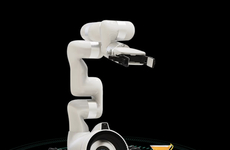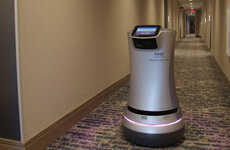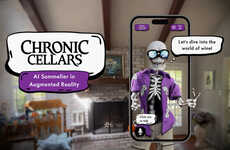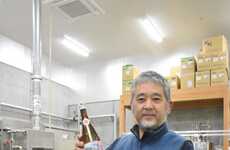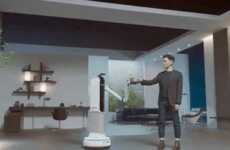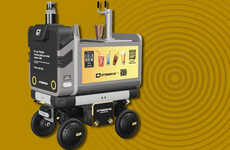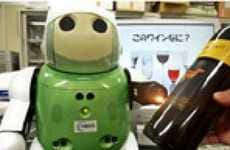
Greg Ponesse — September 5, 2006 — Tech
References: guardian
The ability to discern good wine from bad, name the specific brand from a tiny sip and recommend a complementary cheese would seem to be about as human a skill as there is. In Japan, robots are doing it.
Researchers at NEC System Technologies and Mie University have designed a robot that can taste -- an electromechanical sommelier able to identify dozens of different wines, cheeses and hors d'oeuvres.
"There are all kinds of robots out there doing many different things," said Hideo Shimazu, director of the NEC System Technology Research Laboratory and a joint-leader of the robot project. "But we decided to focus on wine because that seemed like a real challenge."
Researchers at NEC System Technologies and Mie University have designed a robot that can taste -- an electromechanical sommelier able to identify dozens of different wines, cheeses and hors d'oeuvres.
"There are all kinds of robots out there doing many different things," said Hideo Shimazu, director of the NEC System Technology Research Laboratory and a joint-leader of the robot project. "But we decided to focus on wine because that seemed like a real challenge."
Trend Themes
1. Wine-tasting Robots - The trend of developing robots with the ability to taste and identify various wines and food is disrupting the traditional sommelier industry.
2. Sensory Recognition Technology - The trend of using advanced sensory recognition technology in robots is creating opportunities for innovation in the food and beverage industry, allowing for more precise identification and recommendation capabilities.
3. Robotic Sommeliers - The trend of creating robotic sommeliers is revolutionizing the wine and hospitality industry by providing unique and automated wine-tasting experiences.
Industry Implications
1. Food and Beverage - The food and beverage industry can benefit from disruptive innovation by incorporating wine-tasting robots to enhance customer experiences and improve product recommendations.
2. Hospitality - The hospitality industry can explore disruptive innovation opportunities by embracing robotic sommeliers to offer personalized and efficient wine-tasting services to guests.
3. Technology - The technology industry has the potential for disruptive innovation through the development of advanced sensory recognition technology, enabling more sophisticated applications in various sectors.
3.2
Score
Popularity
Activity
Freshness


